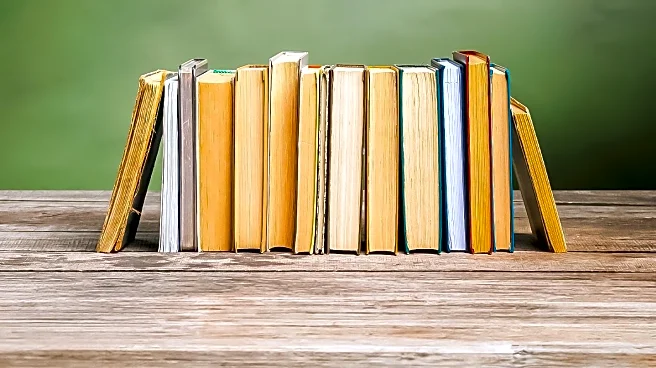What's Happening?
The Chicago Humanities Festival has announced its fall 2025 lineup, featuring prominent figures such as Margaret Atwood, Kate McKinnon, and Roxane Gay. The festival, which began in 1989, is responding to current challenges in humanities funding and education. The event will include talks, readings, and performances across various Chicago neighborhoods, focusing on topics relevant to contemporary society. Notable events include Roxane Gay discussing the 10th anniversary of her book 'Bad Feminist' and Salman Rushdie speaking at the Athenaeum Center. The festival aims to address the decline in humanities curricula and public funding, with events scheduled at impacted local communities and educational institutions.
Why It's Important?
The Chicago Humanities Festival is significant as it highlights the ongoing challenges faced by humanities disciplines in the U.S., including reduced funding and curriculum restructuring. By bringing together diverse voices and ideas, the festival seeks to foster dialogue and reflection on societal issues. It serves as a platform for cultural expression and intellectual engagement, which is crucial in a time when humanities are under threat. The festival's focus on inclusivity and diversity of thought underscores its role in advocating for the importance of humanities in education and public discourse.
What's Next?
The festival will run from September 18 to November 13, with events planned across Chicago. As the festival progresses, it may spark discussions on the future of humanities education and funding. Stakeholders such as educators, policymakers, and cultural organizations might engage in conversations about preserving and promoting humanities in the face of financial and institutional challenges. The festival's outcomes could influence future strategies for supporting humanities in academic and cultural settings.
Beyond the Headlines
The festival's emphasis on diverse perspectives and community engagement reflects broader cultural and ethical considerations. It highlights the importance of maintaining spaces for free expression and critical thinking, especially in a polarized political climate. The festival's programming may inspire long-term shifts in how humanities are valued and integrated into public policy and education, potentially leading to renewed efforts to secure funding and support for these disciplines.











